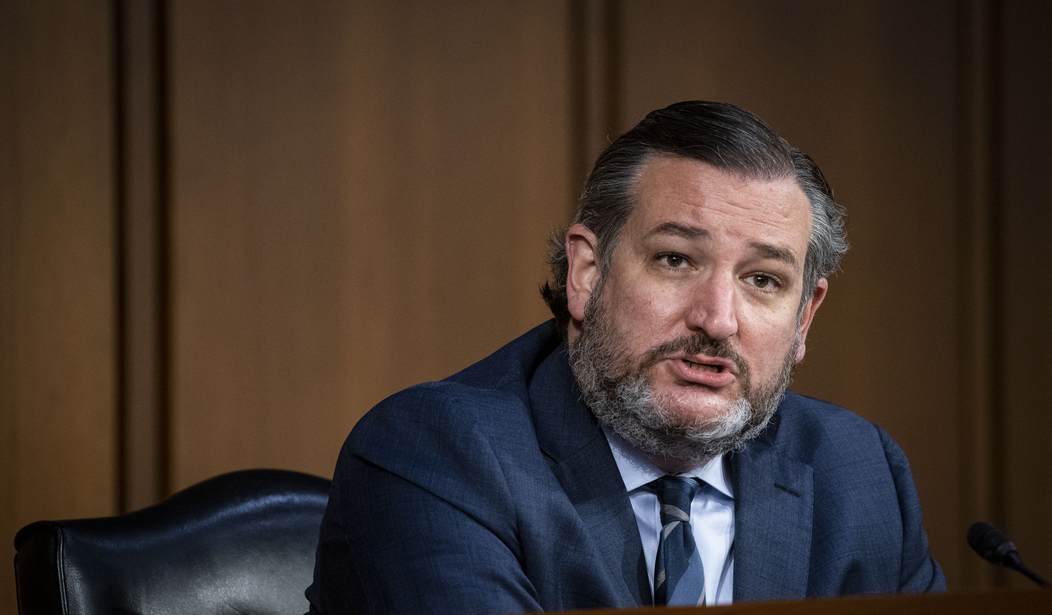Get woke, go broke.
Senator Ted Cruz (R-TX) recently announced he’ll forgo future corporate donations.
NRSC Chair Senator Rick Scott (R-FL) similarly warned “it will be a day of reckoning” against woke corporations if Republicans retake both chambers of Congress next year.
Is a Great Woke Revolt on the horizon? A movement is definitely taking shape. Here are three examples.
Basecamp CEO Puts Foot Down on Politics
Recommended
Last week, Basecamp CEO Jason Reid took a bold stand banning political discourse at his company. His letter “Changes at Basecamp” reads like this:
1. No more societal and political discussions on our company Basecamp account. Today's social and political waters are especially choppy. Sensitivities are at 11, and every discussion remotely related to politics, advocacy, or society at large quickly spins away from pleasant. You shouldn't have to wonder if staying out of it means you're complicit, or wading into it means you're a target. These are difficult enough waters to navigate in life, but significantly more so at work. It's become too much. It's a major distraction. It saps our energy, and redirects our dialog towards dark places. It's not healthy, it hasn't served us well. And we're done with it on our company Basecamp account where the work happens. People can take the conversations with willing co-workers to Signal, Whatsapp, or even a personal Basecamp account, but it can't happen where the work happens anymore.
This move immediately prompted backlash: a third of the company’s workforce immediately quit. (Good!)
Reid isn’t the first tech CEO to employ such a practice. Last September, Coinbase CEO Brian Armstrong published this letter encouraging a “championship” company mission devoid of distractions, namely in the form of politics. Armstrong wrote:
We focus minimally on causes not directly related to the mission:
Policy decisions: If there is a bill introduced around crypto, we may engage here, but we normally wouldn’t engage in policy decisions around healthcare or education for example.
Non-profit work: We will do some work here with our Pledge 1% program and GiveCrypto.org, but this is about 1% of our efforts. We are a for-profit business. When we make profit, we can use that to hire more great people, and build even more. We shouldn’t ever shy away from making profit, because with more resources we can have a greater impact on the world.
Broader societal issues: We don’t engage here when issues are unrelated to our core mission, because we believe impact only comes with focus.
Political causes: We don’t advocate for any particular causes or candidates internally that are unrelated to our mission, because it is a distraction from our mission. Even if we all agree something is a problem, we may not all agree on the solution.
Could more tech CEOs follow suit? Absolutely. The dam has finally broken.
Coca-Cola Regrets Going Woke?
Despite going full throttle on woke policies and piling on Georgia’s new voter integrity law, Coca-Cola has now adopted a conciliatory tone.
What!?
“We believe the best way to make progress now is for everyone to come together to listen, respectfully share concerns and collaborate on a path forward. We remain open to productive conversations with advocacy groups and lawmakers who may have differing views," the company told Washington Examiner. "It’s time to find common ground. In the end, we all want the same thing – free and fair elections, the cornerstone of our democracy.”
This comes after Bradley Gayton, general counsel and chief driver of company diversity initiatives, resigned after eight months on the job. NRO noted:
On April 27, Law.com’s Corporate Counsel reported that Monica Howard Douglas, Gayton’s replacement and a 17-year veteran of Coca-Cola’s legal department, refused to discuss Gayton’s resignation, but told the company’s legal department that Gayton’s departure meant a “pause” on the company’s controversial diversity initiatives.
Ouch.
Texas Hits Back at Anti-Gun Banks
The banking industry was the first sector to “go woke” after it started employing discriminatory practices against firearms and ammunition companies.
Bank of America and CitiGroup, for instance, have made company decisions based on anti-gun politics—not on the grounds of “credit worthiness and financial risk assessment.”
Texas, however, isn’t buying what they’re selling.
A new bill in the state legislature, Senate Bill 19, would prohibit government contracts with companies “that discriminate against the firearm or ammunition industries.”
This effort largely mirrors Senator John Kennedy (R-LA)’s No Red and Blue Banks Act of 2018 to prohibit “the federal government from giving contracts to banks that discriminate against lawful businesses based solely on social policy considerations.”
As of this waiting, SB19 awaits a vote in the Texas House. If it passes, other states could replicate these efforts.
You can bank on that.
Conclusion
The old adage goes, The customer is always right.
And if customers, and by extension consumers, aren’t happy they’ll make their frustrations known and voluntarily take their business elsewhere.
How a handful of loud Twitter voices could make corporate flaks squirm in terror is beyond me. Cowardice reigns supreme until their bottom line is affected.
It’s time to put woke corporations on notice. When we do, we can—and will— win.

























